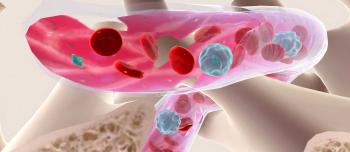Pfizer Inc. recently announced positive results of a Phase 3 study comparing a once-weekly prophylaxis regimen of BeneFIX®, the company’s recombinant factor IX product, to on-demand treatment in males with moderately severe-to-severe hemophilia B. 25 participants with a mean age of 31.3 years were enrolled in the trial. All participants received at least one dose of BeneFIX®, while no participants discontinued their treatment prematurely. The mean duration of treatment was 550 days.
The two-period study consisted of six months of on-demand therapy only, followed by 12 months of routine prophylaxis with BeneFIX®. The results showed a statistically significant reduction in the annualized bleeding rate (ABR) when compared to on-demand treatment with BeneFIX®. Specifically, the mean ABR for the prophylaxis regimen was 3.6, in contrast to 32.9 in the on-demand regimen, representing a 89% reduction in bleeding rates. The majority (82.1%) of bleeding episodes in the prophylaxis arm were resolved after one infusion.
Adverse events observed in the study for both the prophylaxis and on-demand periods, were comparable with the existing adverse events included in the drug profile. The most common adverse events reported during the prophylaxis treatment period were arthralgia (20%), upper respiratory infection (20%), toothache (20%), pyrexia (16%), headache (16%), pharyngitis (12%), back pain (12%) and local swelling (12%). No inhibitor development, thrombotic events or allergic reactions related to this product were observed in this study.
“These results are important because they add to the growing body of clinical evidence showing that prophylactic treatment has the potential to reduce the number of bleeds in a year, the most critical factor in hemophilia management,” said Steven J. Romano, MD, senior vice president and Medicines Development Group Head, Global Innovative Pharmaceuticals, Pfizer Inc.
According to the Pfizer release, complete results from the study will be submitted for presentation at upcoming medical congresses and submitted for publication in a peer-reviewed journal.
Source: Pfizer press release dated July 16, 2014





